Pointless Views: D6 Are Balls
October 11, 2019 by crew
For some website features, you will need a FREE account and for some others, you will need to join the Cult of Games.
Or if you have already joined the Cult of Games Log in now
What difference will having a FREE account make?
Setting up a Free account with OnTableTop unlocks a load of additional features and content (see below). You can then get involved with our Tabletop Gaming community, we are very helpful and keen to hear what you have to say. So Join Us Now!
Free Account Includes
- Creating your own project blogs.
- Rating and reviewing games using our innovative system.
- Commenting and ability to upvote.
- Posting in the forums.
- Unlocking of Achivments and collectin hobby xp
- Ability to add places like clubs and stores to our gaming database.
- Follow games, recommend games, use wishlist and mark what games you own.
- You will be able to add friends to your account.
What's the Cult of Games?
Once you have made a free account you can support the community by joing the Cult of Games. Joining the Cult allows you to use even more parts of the site and access to extra content. Check out some of the extra features below.
Cult of Games Membership Includes
- Reduced ads, for a better browsing experience (feature can be turned on or off in your profile).
- Access to The Cult of Games XLBS Sunday Show.
- Extra hobby videos about painting, terrain building etc.
- Exclusive interviews with the best game designers etc.
- Behind the scenes studio VLogs.
- Access to our live stream archives.
- Early access to our event tickets.
- Access to the CoG Greenroom.
- Access to the CoG Chamber of Commerce.
- Access the CoG Bazarr Trading Forum.
- Create and Edit Records for Games, Companies and Professionals.

































![TerrainFest 2024! Build Terrain With OnTableTop & Win A £300 Prize [Extended!]](https://images.beastsofwar.com/2024/10/TerrainFEST-2024-Social-Media-Post-Square-225-127.jpg)
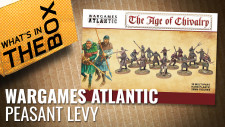

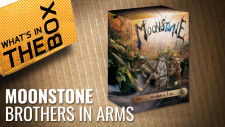










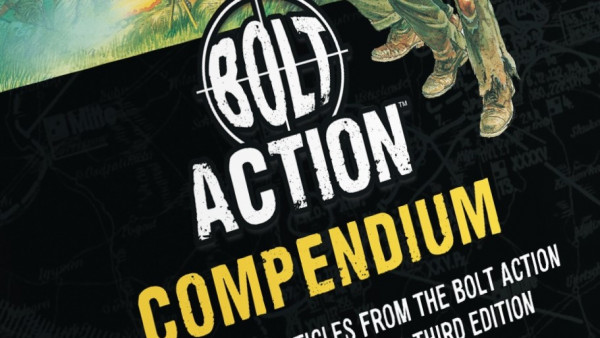

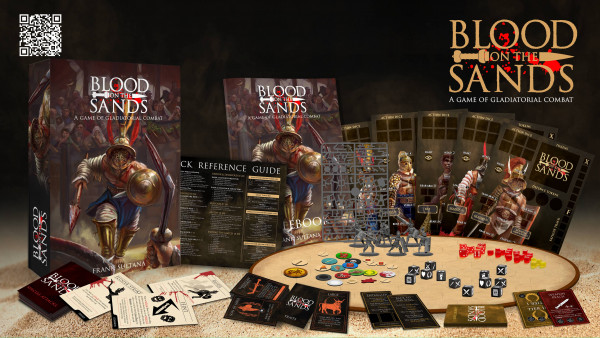


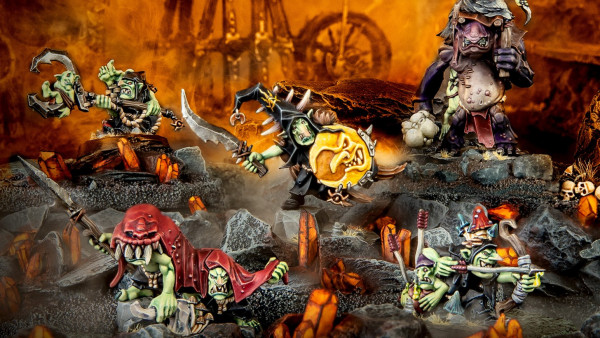


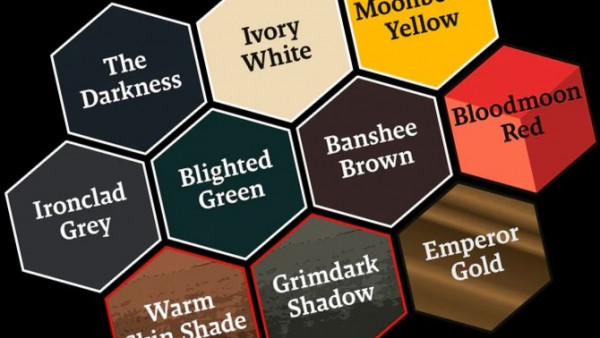
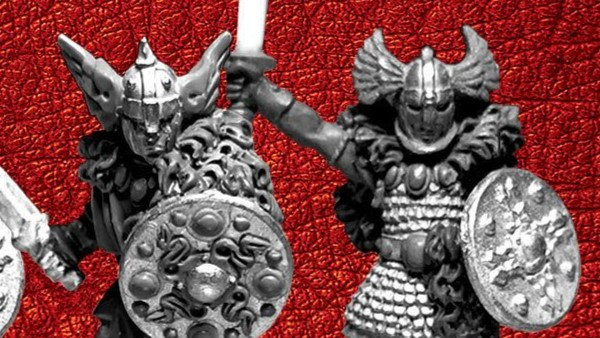
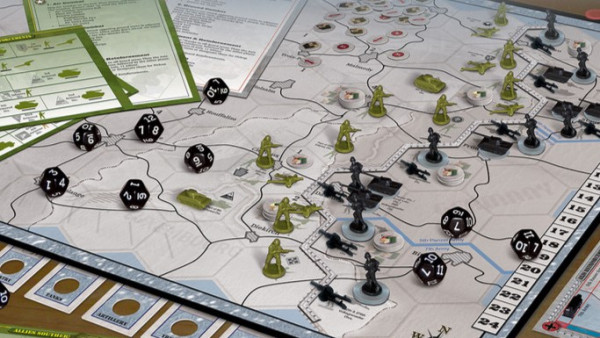










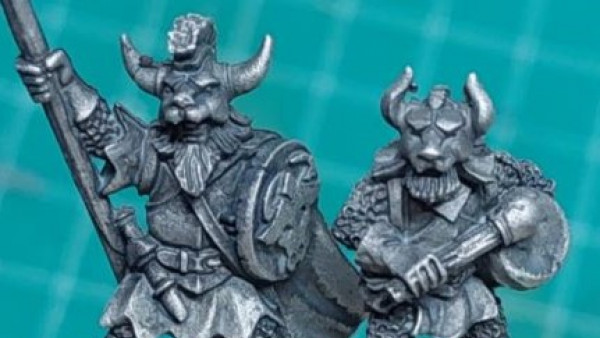

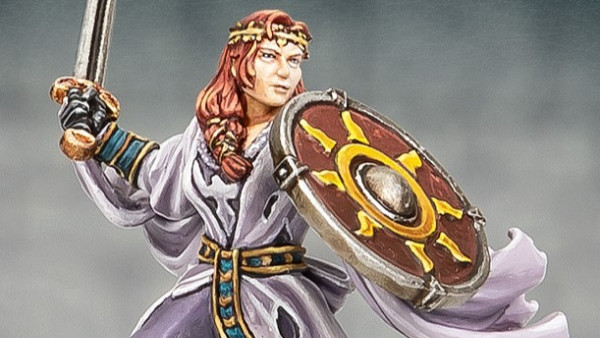
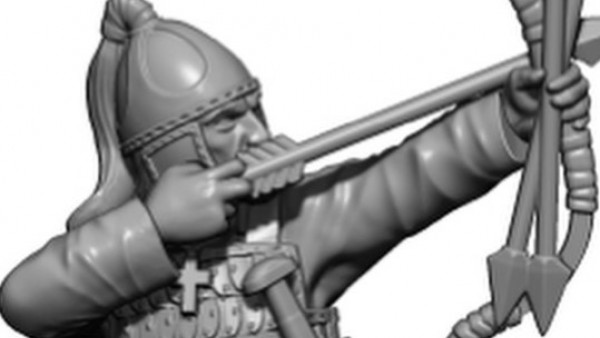
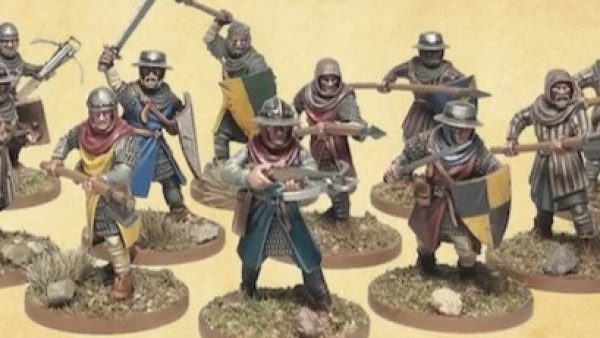



Good Morning, great conversation. There is a reason why physical games are still around and not just died in the late 90s. Computer games are more convenient and accessible, but its not the same as sitting around a table and having a laugh. I could ‘go out’ with my buddies on Skype, we open a group all sitting in front of our computers with our beverage of choice and having ‘a good time’. But it would never be the same as going to the pub or a friends house. Oh and I just leave this here: A Freudian slip, also… Read more »
Good Morning CoGs More cuddly what? In German we say “sexuelle Schwungmasse” (Don’t try to pronounce that!) and that translates to something like “sexual oscillating mass” and I think that’s beautiful My god @avernos have you ever thought of maybe doing “tiny fighting men games manufacturers consulting”? Some, no most of your view are mind boggling (and show how little I’m thinking at times) I like the concept of digital beta testing because I can do it on my own. Even with a beta PDF of rules I still have to have some to play with/against. Unless it’s a single… Read more »
I do prefer D10,D100 and D20’s as then at least your using easy to modify percentages
“How do you feel about us playtesting on..” “Yes good idea” “Wait but we didn’t even say how we’re going to playtest our games” “Doesn’t matter how you do it just get it done any way possible” All playtesting is good playtesting. TableTop Simulator on Steam is great for testing out a tabletop game. Universal battle is great, we used to use it all the time for Warhammer Fantasy many years ago. @warzan I’d be keen to take a look at this spreadsheet. You should check out Jim / @oriskany s Weekend Wargaming which is just Games played on Excel… Read more »
You didn’t stump me, I’m still waiting for you to answer a question I sent via PM. I’m not a mind reader, and as I said in a message, any model of complexity will come down to the assumptions that you make. I did also send you this (at 2am on Monday morning), which was the start of what I was going to try and model. “The simplest I can break it down to is this. Let us assume a 2 player wargame that has two factions, Good and Evil, and two different metas exist within each faction, an aggressive… Read more »
“no reply at time of recording” whenever that was 😉 Maybe that exact moment when you send him the DM? 😉
Sorry @robert my mistake mate I thought it was a rhetorical question mate and you were just musing out loud 🙂
Feel free to go any direction you want on it mate as I suspect it’s one of those problems that will require some out of the box thinking to try and model it some way 🙂
All I’m trying to get a handle on is what is the shape of the complexity curve 🙂
No worries, @warzan, I apologise for all the rude names I called you this morning while watching the show, especially the names that cast doubt on the status of your parents marriage at the time of your inception. Sorry to @lloyd about that as well 🙂
lol no probs 🙂
Maybe have a coffee first? XD
Assuming the same force is balanced against each other you get the following general equation:
((“Meta”xN)x(“Meta”xN)-(“Meta”xN))/2
Where N = number of factions and “Meta” is some measure of the Meta within a faction so in Robert’s example it would be 2 metas per faction.
Its a polynomial equation. With both “Meta” being squared and Number of factions being squared. So if you had 5 factions and 3 metas (e.g. aggressive, defence, balanced) that would be 105 ((3×5)x(3×5)-(3×5))/2 combinations to balance.
i think 1 of the biggest advantages of a D6 in any game is the ease of identifying the value rolled. its the value on top parallel surface rolled on if there is none, its “cocked” reroll. because the other sides are right angles to each other it’s easy to identify quickly over multiply dice also you can line the shapes up with little tight order to read off in sequence. so its more convenient and sometimes less open to debate what has been rolled. so it’s less about the function of the dice chances but the clear defined output… Read more »
but the platonic solids can be read in similar ways and it’s these which the professor decided are “fair” dice in his analysis, in fact for the d4 it’s almost impossible for it to be cocked due to the large base.
What I think Gerry is talking about in a nice “simple” video?
https://www.youtube.com/watch?v=G7zT9MljJ3Y
I watched this ages ago but it covers what Gerry is talking about as far as I remember.
Also most games use D6s because a) they are cheaper to manufacture b) everyone has them. I did offer to write an article on probability, expected value and Game Theory (the John Nash version), but no interest in it.
On the topic of dice, and my language isn’t technical here and my English probably isn’t good enough to express my thoughts on this properly (which is also a reason why a lot of games are confusing, the mastery of the English language – Gaz touched on it last week in his reply, and Gerry in this video but is a whole different topic). The larger the die, the more control a game designer has over the outcome of rolls, so games that use D10, D20 etc, in theory, should be less determined by luck. A larger die allows you… Read more »
No, a larger die is just a greater range of results.
In the case of rolling a “crit” on a 6, and the same with a 20 on either a D6 or D20, the D20 feels less “swingy”.
Smoothing out the odds and having more control so that must results come out one average as X is where a D6+D6 system comes in, or using dicepools where you count up the number of successes.
A larger range means finer, more granular steps, meaning you have a greater degree of differentiating between two characters.
I’ve always thought 40k would be better suited to D10s from a narrative perspective as statlines could fit the fluff more. As Gerry said the limitations placed by D6 restrict what can be done. For example, in the fluff a single marine is worth 10 guardsmen, a far better shot than a guardsmen, yet on a D6 its 1 point of difference in terms of their toughness, strength and ballistic skill. The D10 would allow for grewater granularity, but equally as Warren said, you could easily move to a D20 from a D10. I think the restriction also comes from… Read more »
Morning , nice little piece to listen to whilst actually doing some work. D6 problems @avernos right on ! The ………!# reliance on d6 drives me nuts at times. Two hour wargames rules have some great ideas but are extremely limited by d6 (someone did do a d10 conversion) and thinks it has similar effects on other rules. Now having had this discussion on numerous sites over the years. Why is industry stuck on d6? Availability this was an argument regularly thrown out by Americans(generally and only from a vocal group amongst them) on various Forums when any move away… Read more »
@warzan a logarithmic scale is just a generic form of the exponential curve. The difference is the base number that the plot conforms to. What you are talking about is in some degree is a solved problem, and is related to the understanding of computer programs (because these to are complex systems where a change can ripple through the system). Depending on the type of change you do it might have a change on the size of the loops performed. Some changes though will be linear in nature, as you are making a systematic simple shift. If you want to… Read more »
@avernos The type of dice has nothing to do with things – because that is more an issue of division of the scale. A D6 vs a D12 is still the same sort of system if the rule is “roll higher than target number” Things get more interesting when we start looking at Infinity (roll low but high), and the 2d6 system of Warmachine and Hordes. Or say dicepool systems of Guild Ball or Vampire the Masquerade. @avernos you are wrong though, the D4, D6, D8, D10, and D20 all consist of shapes that have the same shaped faces. So… Read more »
The advantages of the 2d6 system or a dicepool system is that you now have a bell curve.
with a single d6, or a single d10, each result has an equal chance on that die.
With a 2d6 system there is a greater chance of rolling a 7 than any other result.
The same with dicepools. With a XD10 system, where the goal is to get a number of dice that roll a 6+, again the larger the dicepool is, the mode of the bell curve is shifted to higher values.
nope, read the article, D4, D6, D8, D12 and D20 do, D10 doesn’t because of maths that is far beyond me. http://statweb.stanford.edu/~cgates/PERSI/papers/fairdice.pdf
What they mean by fair here is that moving from one face to another is equally likely, if you are moving from a stationary position on a flat plane. That in that case, a D10 is not fair, because of the arrow head shaped faces. But, while the die is free from the surface, and rotating in free space, because all the sides are the same in shape, each side is equally likely of being the result.
The science of symmetry groups comes up a lot in my work relating to crystal structures of materials.
so D10 isn’t fair, then
I would say not fair, but very very close. I would say a D10 when given a good amount of time to rotate in free space is pretty close. But then you could just use a D20!
I would add that dice are generally a little bit skewed in any case because of the variable weighting of the different numbers and the variability that a curved edge has. (This is why casino dice have sharp edges and numbers which aren’t carved or molded into the surface of the die.
Not speaking for Gerry, but my understanding of the research that he is talking about is more than just having the same shaped faces, it is about symmetries and possibly even centre of gravity. Going by memory (and mine is crap) what they argued is that D4, D6, D8, D12, D20 are fair, the rest aren’t going by their criteria of what a fair dice is.
Sure centre of gravity is a factor – but at these scales it is of no real consequence vs mechanical forces of rotation. Only when the die is sat flat on a perfect plane would I say centre of gravity is the most important influence.
I was thinking that. In the standard set of polyhedral dice, all faces on each dice are the same shape. More to the point, I think apart from the d10, the faces on each dice are all made up shapes whose sides are all equal length.
@Warzan the topic that is analogous to game complexity is this
https://en.wikipedia.org/wiki/Programming_complexity
It may be possible to create a formula to calculate a complexity score for a game and create a graph out of that, but each thing added would be of a different value that it would add to the complexity score of a specific game. And you would need to have a baseline for how many “complexity points” the things add to the complexity score of the game. And then there is the human factor. For some people some features maybe more complex than to others, not everyone can get their heads around certain things as easily as others, while… Read more »
Well I am no mathematician but the challenge with ‘complexity’ is that you first have to define what you mean by complex (there are dozens of definitions), understand the variables that lead to that complexity (i.e. agree the factors which make a game complex, per that particular definition) and then work out the maths based on those variables. For example, one element of complexity might be the board size in a grid based game like chess (16×16, 32×32). That gives the number of possible places a ‘piece’ can go. Then add the different movements of each piece (simpler in checkers… Read more »
Metrics of complexity do exist for computer software, so coming up with the equivalent for a boardgame should be a similar challenge. https://en.wikipedia.org/wiki/Cyclomatic_complexity
@doctorether dice shape I will pass to your knowledge on but having properly balanced dice is the thing on all dice.
cheap badly made dice can completely throw any calculation, badly balanced dice can end up with trips out into the Desert in Vegas!
A friend brought a copy on Settlers with above, luckily they were so out everyone quickly realised they where whacky!
Mind you it does make you wonder when an opponent wont let you use their dice!
Of course, the balance of the dice counts. But we are talking about die shapes assuming perfect platonic, or symmetric shapes with no funny business going on.
So the issue with the D10 is the moving from one face to another, as it rolls, are not equally likely. But if the rotation is in free space, then that spin is more fair, because the die, ideally has a perfectly centred point of mass.
What the D10 has going against it is that unlike the platonic solid dice, is that the initial orientation before the “roll” in free space is a factor on which face lands (assuming it lands with a dead stop).
Essentially, if i understand correctly, the ‘problem’ is that once the D10 is rolling on the table it is more likely to roll onto a face that is on the same half as the face it is on. In other words it is more likely to spin about one particular axis because it’s axis are substantially different from one another. I can’t see that this becomes a problem unless someone has the ability to roll the D10 in such a way as to take advantage of that, in which case i think this someone is quite capable of rolling whatever… Read more »
Pretty much this. So if you roll it, but such it has enough “air time” before hitting the surface, I think this is a non issue. Once it hits the surface, the odds of which side comes up relies on the side that contacted the surface.
@dodtorether, think my gut feeling was there was always something funny with D10, always preferred to use D20,
Then d20 no 1-10 way back in the day was the standard, but they were called percentage dice way back in the day used in pairs.
Where is the audio download, guys?
Fair Dice (Part 1) – Numberphile https://youtu.be/G7zT9MljJ3Y He did not exactly say that D6 is the only fair dice. However, some are more fair than others. The issue with D6 vs D10 vs D20 makes sense for a bigger spread of numbers and probability is fair enough to get more options. What Warren is talking about is not complexity buy rather Permutations and Combinations and the field of specialty is called Combinatorics. Here is a good primer (https://betterexplained.com/articles/easy-permutations-and-combinations/) While it takes relatively nothing to calculate permutations and combinations (https://appdividend.com/2019/01/28/calculate-permutations-and-combinations-in-python/) which data sets work best against other data sets especially when… Read more »
“GW, have we been too hard on them?” -Warren
“No,” -Gerry
Whilst i think that online and digital playtesting can be a good thing i think that it also has it’s pitfalls. I would think the main benefits of digital playtesting would be: that a larger number of playtest games would happen in any given amount of time due to various processes being automated; that a larger number of players can be involved due to the lower cost of components; that the playtest games can be recorded more easily; and that the game can be changed more easily. So digital playtesting will be of benefit mainly in terms of the speed… Read more »
haven’t heard the whole conversation yet, but I’m suprised no one has mentioned GameBoard-1 which is currently on KS…
https://www.kickstarter.com/projects/gameboard1/gameboard-1
Seen several similar tables like MS surface in the past…
This is a good example of where i don’t want the gaming industry to go. It’s the stone soup of table top gaming.
I can see it having a place on the table in something like an RPG game, where the DM uses it to reveal map points or rooms being explored, but beyond that nor am I convinced.
Also check out the forum topic started by @sundancer :
https://www.beastsofwar.com/forums/topic/interactive-tabletop-rpg-table/
A raspberry pi + a cheap monitor is all you need to have a similar product.
It won’t have the interactivity, but as a screen for the GM to gradually reveal a map it is ‘cheap’ and does not require advanced DIY/Electronics skills.
Asking a mere 100,000 Euro for an electronics device with a software component should raise giant red flags. I suspect that they’re funded/supported by Arrow Electronics, because that company has a program for supporting startups like this ( details : https://www.fiveyearsout.com/ ).
There’s a good reason why MS never made those Surface tables available to consumers.
It’s the same reason why none of the competing products (which do exist!) have a price that could be considered ‘afforable’ by consumer standards. The tech required is expensive with only a limited amount of suppliers.
Also notice the subscription plan. That’s not a consumer friendly product.
Oh – I didn’t mean to give the impression that I recommend, support or encourage anyone to back this product – I just pointed at it as a potential ‘model’ for how cross-overs between digital and physical gaming is likely to go.
I come across massive Surface hub screens in several customers’ metting rooms – fun presentation toy but I struggle to see a business case for the investment required (£7-9000 each)
Complexity and dice within rulesets… There are 3 main factors determining the use of dice to represent randomness within a complex environment, all of which have to be considered: 1. Number of sides per dice or the range of values (with some game specific dice) 2. Number of dice per roll then are they independent or additive (e.g. with 2xd6 are they two values 1-6 or one value 2-12 with bell curve) and then the third element often overlooked… 3. the number of rolls of each dice (e.g. first to hit, second to wound, third to save…) Do we get… Read more »
I will keep this one shorter than the last post due to the guys only reading the last paragraph.
@avernos How does game complexity change when you take away the dice i.e Malifaux’s use of cards, is this a better mechanism or not?
It depends on how you are doing it. So if you draw, and then shuffle back in and draw, that has different odds compared to drawing a card, and then drawing a second.
That latter case is well defined in combinatorial mathematics.
eleven
The deck holds a fixed distribution of values that occur each run through the deck, so a certain amount of card-counting can be used and valid deck manipulation actions made in a game like Malifaux to a good player’s benefit.
In constrast, every roll of each dice is an independent event with random outcomes.
Interesting that Oathsworn gives you the choice…
More professor Warren in the future? Maybe?
invasion of the moobs.
tried advanced mathematics at college that’s a no from me Guys.
For a board game with digital integration try Mansions of Madness 2nd edition
Good show guys. As a boardgame that uses tech I’d recommend trying Chronicles of Crime. Its a murder mystery where you play the Investigator team. You use the app on your phone to look around the Murder scene then any items or witnesses you scan with a QR reader to find more info. Highly recommend.